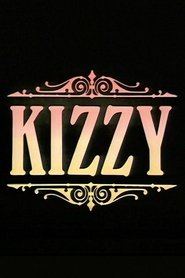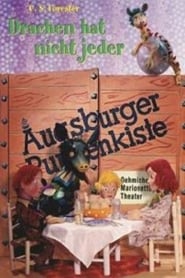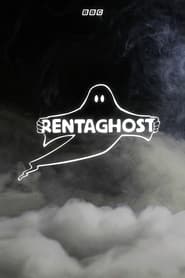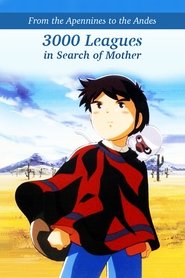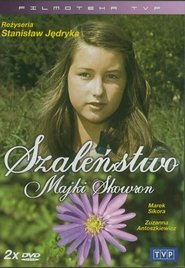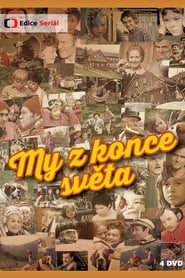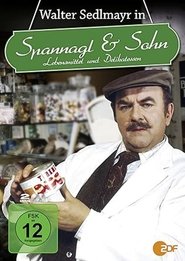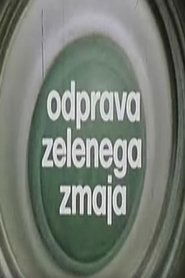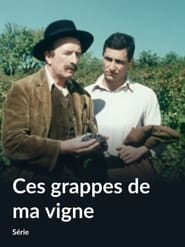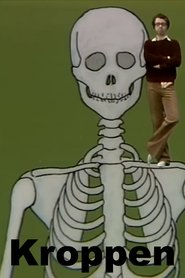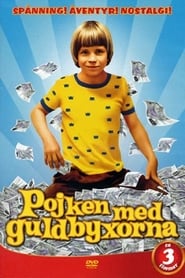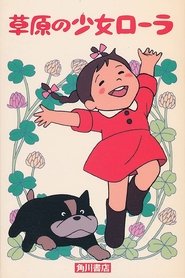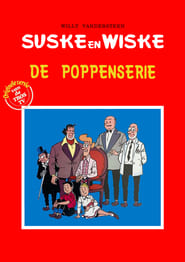New Family TV Series on Pantaflix - Page 425
-
Ivor the Engine
1976
Ivor the Engine
1976
star 7Ivor the Engine is a British children's animation by Oliver Postgate and Peter Firmin's Smallfilms company. It is a children's television series relating the adventures of a small green locomotive who lived in the "top left-hand corner of Wales" and worked for The Merioneth and Llantisilly Railway Traction Company Limited. His friends included Jones the Steam, Evans the Song and Dai Station, among many other characters. -
Kizzy
1976
Kizzy
1976
star 6Kizzy is a six-part 1976 BBC television miniseries based on Rumer Godden's novel The Diddakoi. It starred Vanessa Furst as orphan traveller (or Romani girl) called Kizzy, who faces persecution, grief and loss in a hostile, close-knit village community. -
Rentaghost
1976
Rentaghost
1976
star 6.3Rentaghost was a British children's television comedy show, broadcast by the BBC between 6 January 1976 and 6 November 1984. The show's plot centred on the antics of a number of ghosts who worked for a firm called Rentaghost, which rented out the ghosts for various tasks. -
3000 Leagues in Search of Mother
1976
star 7.7Italy is in a deep depression, so to support her family, Marco's mother goes to Argentina to work as a domestic. But after she writes to her family that she is sick, her letters stop coming. So Marco decides to go to Argentina to look for her. He travels across Argentina to find her, meeting many wonderful people, and having many adventures during his journey. -
The Georgian House
1976
The Georgian House
1976
star 6Two children travel back in time and attempt to help a Black slave boy who possesses strange powers. -
Mens far var på Grini
1976
It depicted the children's relationship to the war 1940-1945. Rolf Riktor's father was arrested and sent to the prison camp Grini and his mother travel to Oslo to look for him and get the opportunity to visit him at Grini. The children however do not get an opportunity to visit the prisoners. -
My z konce světa
1975
My z konce světa
1975
-
Spannagl & Sohn
1975
Spannagl & Sohn
1975
-
The Expedition of the Green Dragon
1975
Miha, Pipi and Andrej finally convince Bobo to take them on a trip in a used car Old girl, but soon an unforeseen complication hits them. The boys then encounter Janja, who has run away from home and who steals the heart of one of them. But what about when Bob is secretly colluding with the militia. -
Emil of Lönneberga
1975
Emil of Lönneberga
1975
star 7.4Emil i Lönneberga is a Swedish television adaptation of Astrid Lindgren's Emil i Lönneberga books -
Kroppen
1975
Kroppen
1975
-
Pojken med guldbyxorna
1975
star 7.5Pojken med guldbyxorna is a 1975 Swedish TV-series, based on an 1967 novel by Max Lundgren, that became very popular in Sweden and has since been shown numerous times on Swedish television. The version now broadcast on TV4 Guld consists of episodes cut into 30 minutes each. The plot revolves around a boy who discovers that he is able to pull an infinite number of banknotes from the pockets of his jeans. -
NBC Special Treat
1975
-
Suske en Wiske - De Poppenserie
1975
After lengthy discussions with Willy Vandersteen, the artist of the comic strip, this series was put into production in 1973. This happened in collaboration with the Flemish actor and producer Wies Andersen. Instead of adaptations of the existing comics, six new stories were chosen. The puppets were given multiple facial expressions and the sets and props were made based on detailed designs by Studio Vandersteen. Lambik always acts as narrator. A striking difference with the comics is that Jerom's doll now has its eyes open.
 Netflix
Netflix
 Amazon Prime Video
Amazon Prime Video
 Apple iTunes
Apple iTunes
 Apple TV Plus
Apple TV Plus
 Disney Plus
Disney Plus
 Google Play Movies
Google Play Movies
 Paramount Plus
Paramount Plus
 Hulu
Hulu
 HBO Max
HBO Max
 YouTube
YouTube
 fuboTV
fuboTV
 Peacock
Peacock
 Peacock Premium
Peacock Premium
 Amazon Video
Amazon Video
 The Roku Channel
The Roku Channel
 AMC+
AMC+
 Kocowa
Kocowa
 Hoopla
Hoopla
 The CW
The CW
 Vudu
Vudu
 Starz
Starz
 Showtime
Showtime
 PBS
PBS
 Pantaflix
Pantaflix
 FXNow
FXNow
 Tubi TV
Tubi TV
 Kanopy
Kanopy
 Comedy Central
Comedy Central
 Crunchyroll
Crunchyroll
 Microsoft Store
Microsoft Store
 Redbox
Redbox
 Sun Nxt
Sun Nxt
 ABC
ABC
 DIRECTV
DIRECTV
 Crackle
Crackle
 Fandor
Fandor
 Plex
Plex

